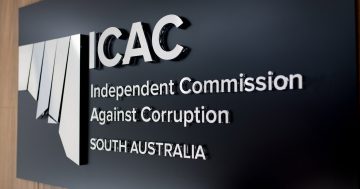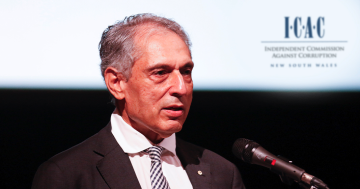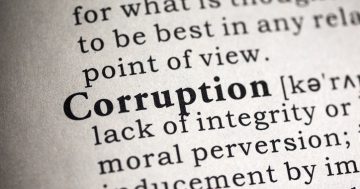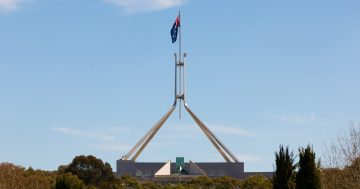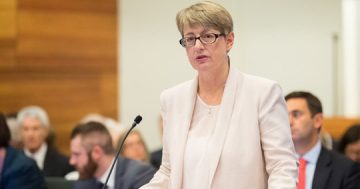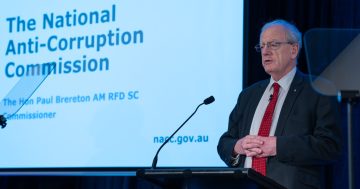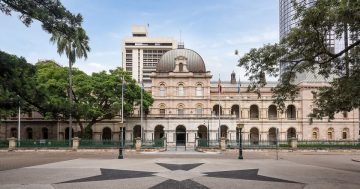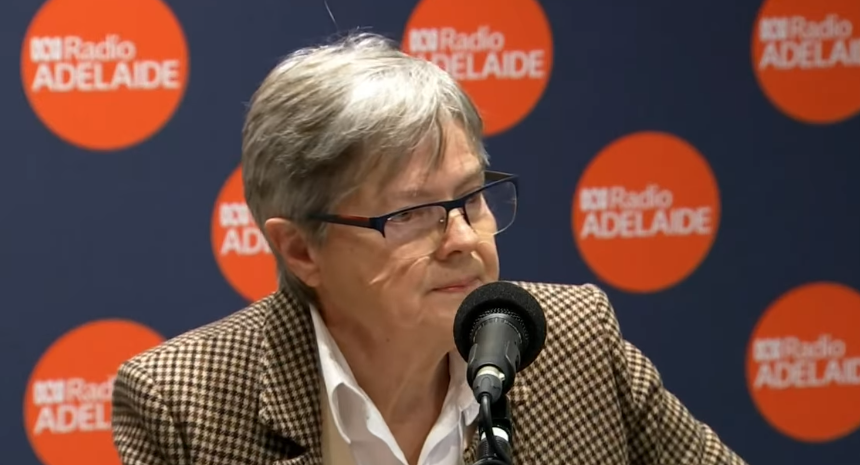
Upon her resignation, Ann Vanstone said the 2021 reforms made SA’s ICAC “the weakest integrity agency in Australia”. Photo: ABC Radio Adelaide.
The outgoing corruption commissioner of South Australia, Ann Vanstone, has tabled six reports in the fortnight before leaving what she recently labelled “the weakest integrity agency in Australia”.
The former Supreme Court Justice will leave the Independent Commission Against Corruption (ICAC) on Friday (6 September) after serving only four years of her seven-year term.
In early July, she told the public her resignation was prompted by “a number of factors, some personal, but most professional”.
“The 2021 amendments to the legislation governing public integrity in South Australia damaged the scheme, under the guise of making it more ‘effective and efficient’,” she said.
“On multiple occasions, I have pointed out the significant problems within the scheme to this government and the last, and to the parliamentary committee that oversees us. But I have run out of steam.
“I have not asked for the previous scheme to be restored. I have recommended modest reform and an independent review of the amendments to see how effective they are. My words have fallen on deaf ears.
“I hope the next Commissioner will succeed where I have failed.”
Outgoing Commissioner Vanstone only remained with the agency for this long due to two reasons: she “naively expected” her concerns would be addressed; but “most importantly”, for her staff to “retain faith that the work they do is important and valuable”.
Since the problematic reforms to the Independent Commission Against Corruption Act 2012 (SA), her agency has been focused on streamlining investigations, assisting public entities to identify systematic vulnerabilities and providing education to public officers.
Along with conducting hundreds of education sessions, during her term the agency has published 31 reports – of which six were tabled in SA Parliament over the past fortnight.
For this most recent work, Ms Vanstone said the agency’s chief concern had been in “finding a way to make an impaired system work” since the changes in 2021.
“In essence, the public interest is not served by narrowing the definition of corruption, or by isolating the Commission from the intelligence sources constituted by all complaints and reports, or by completely divorcing us from the prosecution process so that we are unable to assist a prosecution.
“Absurdly, we are not even allowed to speak to the prosecutor, meaning they are denied access to the expertise and knowledge of Commission investigators who best know the matter. It makes the Commission the only integrity and anti-corruption agency in Australia to be precluded from directly briefing the prosecuting authority.
“Likewise, the public interest is not served by gagging us to ensure we cannot comprehensively share with the community what we know about integrity issues in South Australian public administration; and of course, it is not served when the public is required to pay the legal fees of those convicted of an offence, simply because they were investigated by the Commission.”
While these issues are yet to be addressed, the ICAC’s latest report dictates what the SA Government’s first step should be.
This report made 31 recommendations on properly regulating lobbying activity in and around the public sector. Among its findings were “significant deficiencies” in restrictions around the ‘revolving door’ phenomenon, wherein politicians become lobbyists upon leaving public office.
It also calls out a distinct lack of harmony between Australian jurisdictions, in not only the schemes regulating these special interest groups, but their approach in doing so.
For example, all jurisdictions except SA possess a scheme that operates by referring to a Code of Conduct applying to lobbyists and, for some, lobbied parties.
When the Victorian Independent Broad-based Anti-corruption Commission (IBAC) did a similar analysis earlier this year, this variation was also noted by its Deputy Commissioner David Wolf. He told a public forum on the matter in May that despite harmonisation being “really important” for the states and Commonwealth regime, it would be “difficult to achieve”.
According to the SA ICAC report, perfect harmonisation of these schemes will rarely be possible without a formal referral of powers to the Commonwealth.
However, given “there is no suggestion that any such referral is on the cards”, its first recommendation asks the state to approach any reform of the SA lobbying regulatory scheme “with a view to ensuring consistency” with other jurisdictions.


